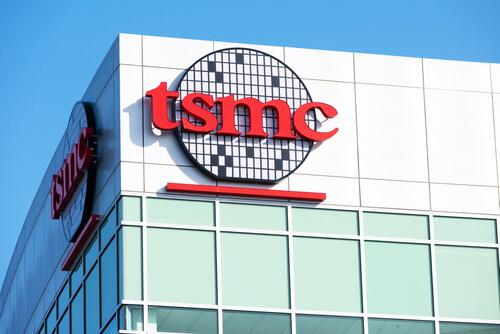Taiwanese chipmaking giant Taiwan Semiconductor Manufacturing Co. (TSMC) is expected to see an increase in its profit for the first quarter on Thursday due to a boom in artificial intelligence (AI) chips.
The profit of the world’s largest contract chip manufacturer is estimated at a 5.0% rise in the three months ending March 31. The forecast came a few days after the company reported a first-quarter revenue surge of 16.5%, which surpassed market and TSMC’s expectations.
Analysts also project the firm’s net profit to be T$217.2 billion ($6.71 billion) for the quarter, higher than the T$206.9 billion net profit posted the year prior.
TSMC’s AI Chip Dominance to Stay
With a major client base that includes tech giants such as Apple Inc. and Nvidia Corp., TSMC has gained momentum from AI advancements, which allowed it to ride out a pandemic-driven slowdown in electronics demand and see its stock hit an all-time peak.
Eric Yao, vice president of a Taiwan-based investment management firm, said the company’s lead in advanced process technologies is expected to persist following the US awarding the semiconductor firm $6.6 billion in federal grants for building three chip plants in Arizona.
Yao added that rivals Intel Corp. and Samsung Electronics Co. Ltd. are unlikely to have much opportunity to keep pace with TSMC.
Intel continued to observe a decline in its foundry business amid its efforts to reclaim dominance in the tech space, which it has been unable to retrieve from TSMC in recent years.
The Santa Clara-based firm reported an operating loss of $7.0 billion on sales of $18.9 billion in 2023, marking a more considerable loss than the $5.2 billion logged in the previous year on sales of $27.5 billion.
Moving forward, analysts see an upward revision of the Taiwanese chipmaker’s outlook for future AI demand. TSMC previously signaled that AI might represent around 18.0% of its revenue by 2026, but analysts expect the company to meet that as soon as next year.
Investors are also advised to closely watch the chipmaker’s central processing unit (CPU) and AI offerings as they mark a complete pivot for TSMC’s business model, which has gained significantly from increased global smartphone use.











